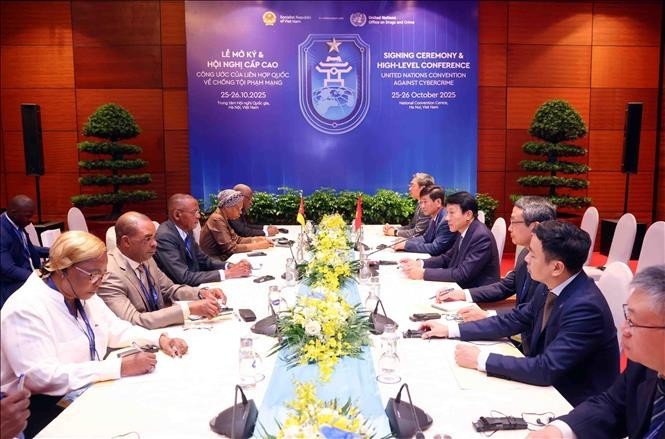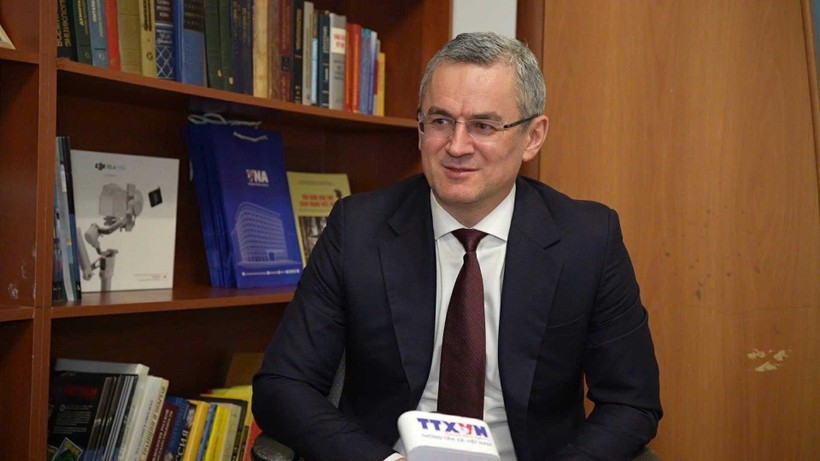Hanoi Convention: Identifying and Combating High-Tech Fraud Crimes
| Hanoi Convention: A Milestone in Multilateral Diplomacy | |
| Vietnam News Today (Oct. 26): Hanoi Convention: Vietnam’s key role in multilateral cooperation |
Cybercrime has become more prevalent and complex as Vietnam accelerates the digitalization of its economic and social activities.
To effectively combat this emerging type of crime, in addition to the strong involvement of competent authorities, the participation of society as a whole plays a vital role—particularly the public’s awareness and proactive engagement in identifying, responding appropriately, and sharing knowledge about digital safety to protect themselves and their communities.
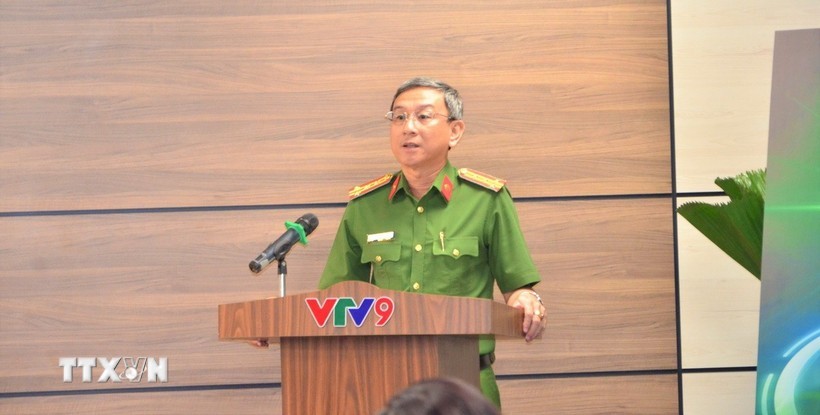 |
| Colonel Tran Hong Minh, Deputy Director of the Ho Chi Minh City Police Department. (Photo: VNA) |
High-Tech Fraud – The “Dark Side” of the Digital Age
Recently, online fraud and cyber-based asset appropriation have remained widespread and increasingly sophisticated, causing significant financial losses to both individuals and businesses.
Thanks to public awareness campaigns by competent authorities, citizens have become more cautious about strange phone calls and messages. However, scammers have continuously “upgraded” their methods to outsmart these preventive measures.
According to Colonel Tran Hong Minh, Deputy Director of the Ho Chi Minh City Police Department, modern scammers now commonly employ advanced tactics such as using high-quality video, highly convincing phishing messages or emails, and deeply personalized content powered by next-generation artificial intelligence (AI).
They also exploit current events and regulatory changes to craft new fraud scenarios that have not yet been publicly warned about.
For instance, criminals may impersonate bank representatives under the pretext of updating customers’ biometric data, or pretend to represent enterprises during the administrative unit merger process, calling customers to request information adjustments.
“Additionally, scammers have shifted their targets—from deceiving adults to tricking children (a more vulnerable group)—to increase their success rate. This has given rise to new forms of property appropriation, such as ‘online kidnapping.’ They also impersonate public authorities (police, prosecutors, courts, customs offices), law firms, or banks to threaten victims into transferring money or offering ‘assistance’ in recovering previously defrauded funds,” Colonel Minh noted.
Lieutenant Colonel Nguyen Xuan Hieu from the Cybersecurity and High-Tech Crime Prevention Division of Dong Nai Provincial Police explained that the core and most common factor behind many successful scams is that perpetrators prey on people’s greed and lack of awareness.
Depending on the target—elderly individuals, students, or pupils—criminals devise different tactics to lure and manipulate victims. “Once the call begins, the victim is drawn into the narrative, making it difficult to remain calm or recognize the deceit,” he said.
Agreeing with this view, cybersecurity expert Ngo Minh Hieu, Director of the Chongluadao.vn project, added:
“Today’s cybercriminals have easy access to new tools and techniques. In the past, hackers often operated alone, but now many form networks or organized groups working together. Their schemes are increasingly sophisticated and closely aligned with domestic news and social developments, making them even harder for the public to detect and prevent.”
Joint Efforts Needed to Prevent and Combat Cybercrime
According to statistics from the Department of Cybersecurity and High-Tech Crime Prevention (A05) under the Ministry of Public Security, in the first eight months of 2025, Vietnam recorded over 1,500 cases of online fraud, marking a 65% increase compared to the same period in 2024, with estimated losses exceeding VND 1.66 trillion.
More than 4,532 malicious domains were detected (up 90%), featuring increasingly sophisticated tactics such as deepfake scams, cryptocurrency fraud, OTP theft, and impersonation of police or bank officials. Beyond financial losses, cybercrime also threatens digital trust and the national digital transformation process.
Colonel Tran Hong Minh, Deputy Director of the Ho Chi Minh City Police Department, emphasized that prevention—particularly public education on fraud tactics—remains the central focus in minimizing victims and curbing the damage caused by this form of crime.
In addition, the police will continue to intensify investigations, arrests, and prosecution of offenders, while coordinating with relevant organizations to launch the campaign “Not Alone – Together for Online Safety”, aimed at raising awareness and preventing newly emerging scams such as “online kidnapping.”
Drawing from his experience in combating online fraud, cybersecurity expert Ngo Minh Hieu, Director of the Chongluadao.vn project, called for collective efforts from authorities, media agencies, and citizens through the national campaign “All People Against Scams.” The initiative aims to raise public awareness, encouraging everyone to slow down and verify information before making money transfers or sharing personal data.
According to Hieu, many victims act too hastily upon receiving requests to transfer money or click on links from criminal organizations, without proper verification.
The “All People Against Scams” media campaign, recently launched by the Vietnam Television Center in Ho Chi Minh City (VTV9), brings together a broad coalition of forces—including the National Cybersecurity Association, local police departments (in Ho Chi Minh City, Dong Nai, Tay Ninh, Khanh Hoa, and Lam Dong), as well as regulatory bodies, financial and securities institutions, and media partners.
According to Tu Luong, Director of VTV9, the campaign is not only a communication initiative but also a significant socio-political event, reflecting Vietnam’s strong commitment to protecting its citizens in cyberspace and promoting a nationwide culture of digital safety.
This campaign also serves as an activity in support of the “Hanoi Convention” on combating cybercrime, an international event to be held in Vietnam on October 25–26, reaffirming the country’s pioneering role in building a safe, transparent, and humane digital environment.
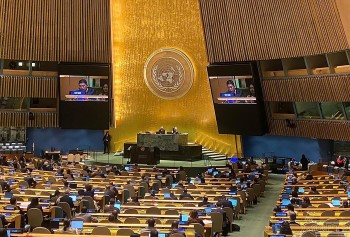 | Hanoi Convention: A Milestone in Multilateral Diplomacy On December 24, the United Nations General Assembly unanimously adopted the United Nations Convention on Cybercrime. As stipulated in Article 64, the document will be ... |
 | Hanoi Convention Marks New Milestone in Vietnam’s Multilateral Diplomacy Deputy Foreign Minister Dang Hoang Giang shared with the press his thoughts on the upcoming Signing Ceremony of the United Nations Convention against Cybercrime, themed ... |
Recommended
 Viet's Home
Viet's Home
Ho Chi Minh’s Legacy in the Land of Roses - Bulgaria
 Viet's Home
Viet's Home
Vietnam Continues to Work with UNESCO to Safeguard Cultural Diversity in the Digital Era
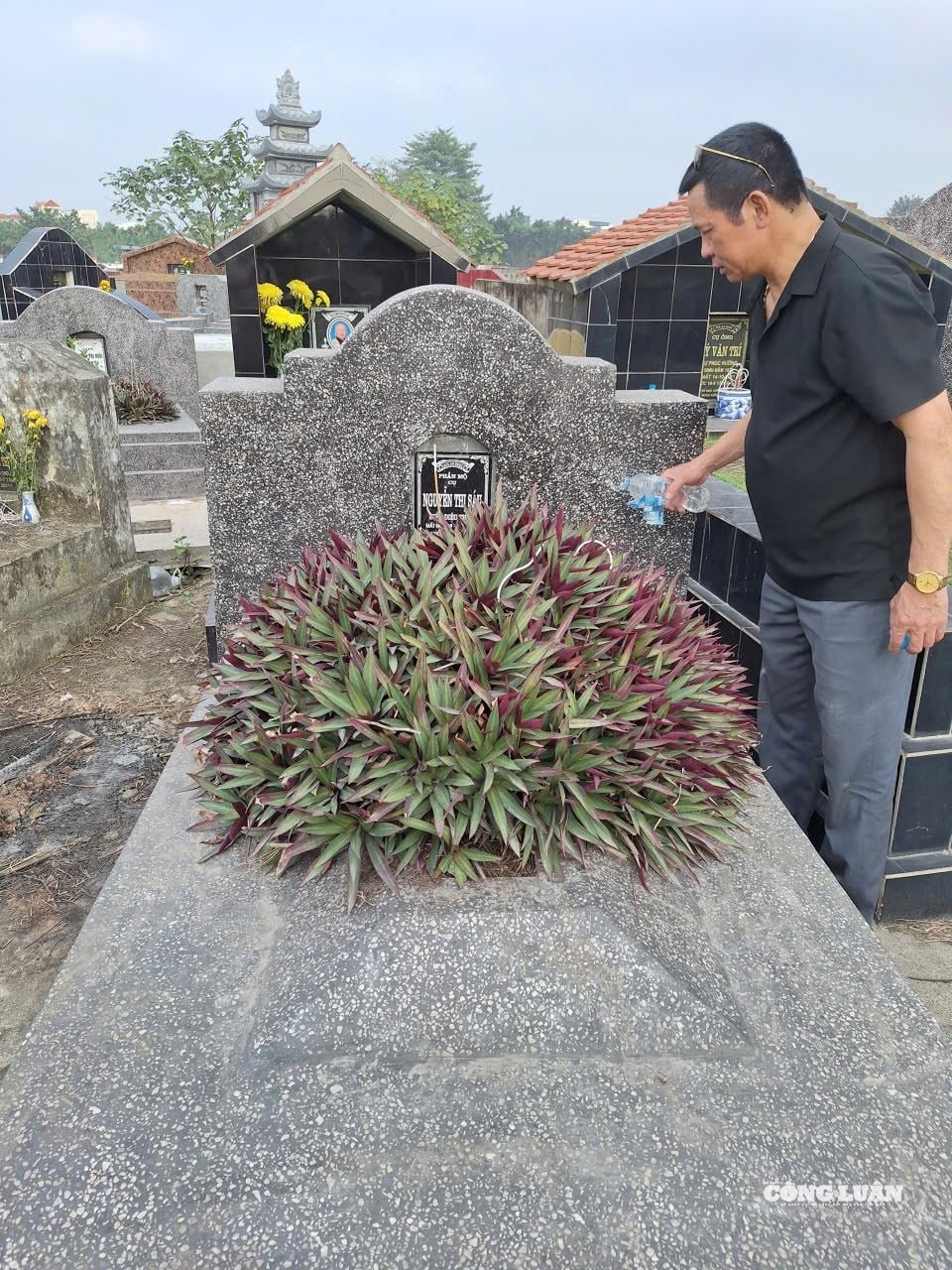 Viet's Home
Viet's Home
Inviting Ancestors Home for Tet
 Viet's Home
Viet's Home
Universities In Vietnam Organize Tet Activities For International Students
Popular article
 Viet's Home
Viet's Home
Zhi Shan Foundation Sent Tet gifts to Over 3,000 Children in Mountainous Region of Quang Tri
 Viet's Home
Viet's Home
Hai Phong Brings Lunar New Year Gifts to Disadvantaged Families in Tran Phu Commune
 Viet's Home
Viet's Home
UNESCO and the Government of Japan Strengthen Disaster Prevention Capacity and School Safety in Vietnam
 Viet's Home
Viet's Home




